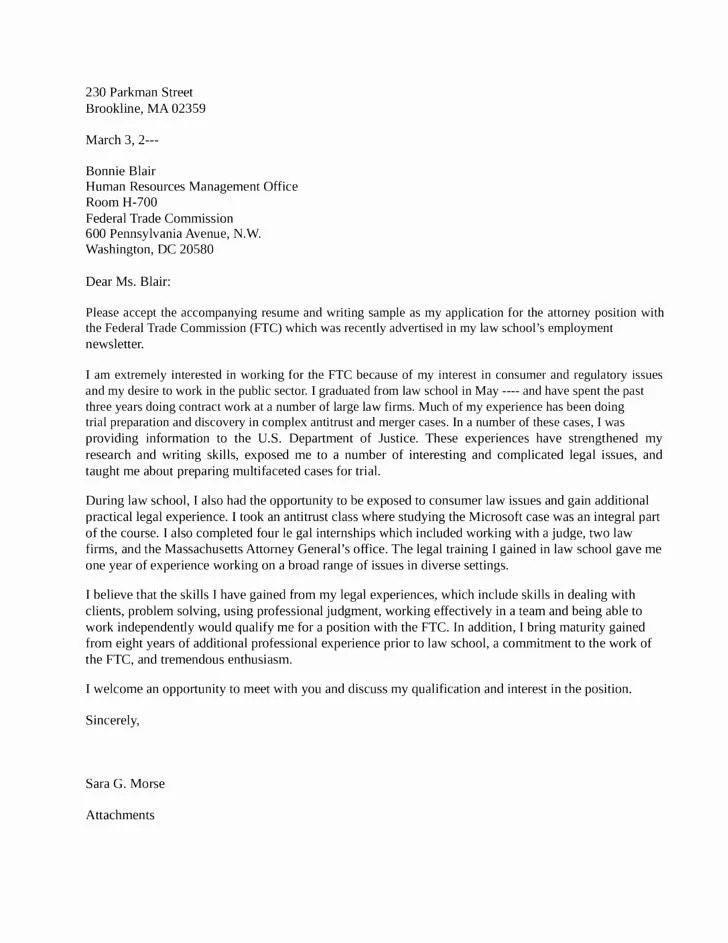Why Cover Letters Still Matter
In today’s job market, you might wonder, do I really need a cover letter? The answer, in most cases, is a definitive yes. A cover letter is much more than just an added formality; it’s a powerful tool that can significantly boost your job application. While your resume provides a snapshot of your qualifications, a cover letter gives you the opportunity to tell your story, showcase your personality, and demonstrate your genuine interest in the role and the company. In a competitive landscape, a well-crafted cover letter can be the key differentiator that sets you apart from other candidates. It allows you to make a compelling first impression and convince the hiring manager to delve deeper into your qualifications, ultimately increasing your chances of landing an interview.
Cover Letter vs. Resume Understanding the Difference
The fundamental difference between a cover letter and a resume lies in their purpose and structure. A resume is a concise summary of your professional history, skills, and education, presented in a factual and often bullet-pointed format. Its primary goal is to quickly inform the hiring manager about your qualifications. Conversely, a cover letter is a narrative document that provides context and expands upon your resume. It’s your chance to elaborate on your experiences, explain career transitions, and express your enthusiasm for the role. The resume tells what you’ve done; the cover letter explains why you’re the right person for the job. Tailoring your cover letter to each position allows you to highlight the most relevant skills and experiences, demonstrating your understanding of the role’s requirements and your genuine interest in the opportunity. This shows your attention to detail and your dedication to the opportunity.
The Purpose of a Cover Letter

The primary purpose of a cover letter is to introduce yourself to the hiring manager and provide context for your resume. It allows you to expand on your qualifications and explain how your skills and experiences align with the specific requirements of the job. It’s also a valuable tool for demonstrating your interest in the company and the specific role. By referencing the company’s mission, values, or recent projects, you can show that you’ve done your homework and that you’re genuinely interested in the opportunity. In addition, a cover letter can be used to explain any gaps in your employment history or career transitions, alleviating any concerns the hiring manager might have. A well-written cover letter creates a positive first impression and sets the stage for your application to be viewed favorably, ultimately increasing your chances of landing an interview.
Reason 1 Makes a Strong First Impression
Your cover letter is often the first point of contact you have with a potential employer, making it crucial to make a strong first impression. A well-crafted cover letter immediately conveys professionalism, attention to detail, and a genuine interest in the position. It demonstrates that you’ve invested time and effort into your application. A generic or poorly written cover letter, on the other hand, can have the opposite effect, signaling a lack of care or a lack of interest in the role. This initial impression sets the tone for the rest of your application. If your cover letter is engaging and well-written, it can encourage the hiring manager to read your resume with more interest and attention, making you more memorable. A strong first impression helps you stand out from the competition. Ultimately, a well-written cover letter is your opportunity to present yourself in the best possible light and make a positive initial impact.
How a Cover Letter Showcases Your Personality
Unlike a resume, which focuses on facts and figures, a cover letter provides an opportunity to inject your personality into the application process. While your resume lists your skills and experience, a cover letter lets you tell your story in your own words, showing your enthusiasm for the role. You can share your career aspirations, discuss your passion for the field, and demonstrate your unique voice. The tone and style of your writing can reflect your personality, whether it’s formal, friendly, or creative. You can use your cover letter to showcase your enthusiasm for the role, discuss your career aspirations, and demonstrate your passion for the field, making your application more memorable. By adding a personal touch, you transform your application from a list of qualifications into a compelling narrative that showcases your personality and suitability for the role.
Why Personalization is Key

Personalization is the key to creating a successful cover letter. A generic, one-size-fits-all approach can signal a lack of interest or effort. Personalizing your cover letter involves tailoring it to the specific job and company. Research the company’s mission, values, and recent projects to demonstrate your genuine interest. Reference specific keywords and skills from the job description to show that you understand the role’s requirements. This will make your cover letter stand out from the many other generic letters that the hiring manager sees. Personalizing your cover letter shows that you’ve taken the time to understand the company and the specific role, demonstrating your attention to detail and your genuine interest. By demonstrating this personalized approach, you increase your chances of getting noticed and landing an interview.
Reason 2 Highlights Relevant Skills and Experience
The cover letter allows you to highlight the skills and experiences most relevant to the job description. While your resume lists your qualifications, your cover letter allows you to provide context and explain why those skills and experiences make you the perfect fit for the job. Tailor your cover letter to the job description. It’s a chance to connect your past achievements to the specific requirements of the role. Providing specific examples of how you have applied those skills in the past will illustrate your impact. In addition, by tailoring your cover letter, you show the hiring manager that you understand the role’s requirements and are genuinely interested in the opportunity. By making those connections, you help the hiring manager see how your background and skills align with the company’s needs. A well-written cover letter is your chance to tell your story and illustrate your value to the company.
Tailoring Your Cover Letter to the Job Description
Carefully read the job description and identify the key skills, qualifications, and experiences the employer is seeking. Then, align your cover letter to match these requirements. Highlight the skills and experiences most relevant to the job. Provide specific examples of how you have demonstrated those skills in previous roles or projects. Use keywords from the job description throughout your cover letter to demonstrate that you understand the role and have the necessary qualifications. Tailoring your cover letter shows that you have taken the time to understand the job, and are genuinely interested in the position. It demonstrates that you’ve thought about how your experiences and skills align with the needs of the company. A well-crafted cover letter directly addresses the job description, which significantly increases your chances of getting noticed and landing an interview.
Quantifying Your Achievements

Quantifying your achievements makes your accomplishments more credible and impactful. Use metrics such as percentages, dollar amounts, and other measurable data to illustrate your contributions. When describing your achievements, provide specific numbers to demonstrate the impact of your work. For example, instead of saying “Improved sales,” write, “Increased sales by 20% within one year.” Hiring managers are more likely to be impressed by specific results than by vague claims. This makes it easier for the hiring manager to understand the value you brought to your previous roles. By quantifying your achievements, you can make a compelling case for yourself, demonstrating your value to the company. This provides concrete evidence of your skills and capabilities, increasing your chances of landing the job.
Reason 3 Demonstrates Your Interest in the Company
Demonstrating genuine interest in the company is a crucial aspect of a compelling cover letter. Mentioning specific aspects of the company that resonate with you helps show that you are more than just looking for a job; you are interested in being part of the team. This can involve highlighting the company’s achievements, its culture, or its contributions to the industry. The cover letter provides the ideal platform to show that you have researched the organization and understand its mission, values, and recent projects. Researching the company beforehand lets the hiring manager know you are engaged and show your motivation. When you demonstrate genuine interest, you signal to the hiring manager that you are a thoughtful and engaged candidate. This shows that you have taken the time to learn about the company and imagine yourself as part of the organization.
Researching the Company and Showing Enthusiasm
To effectively demonstrate your interest in a company through your cover letter, thorough research and genuine enthusiasm are essential. Before writing, research the company’s mission, values, recent news, and any projects that align with your interests. Visit their website, read their blog, and check out their social media profiles to better understand their culture and goals. Incorporate what you have learned into your cover letter. Reference specific initiatives or projects that excite you, and share why you are drawn to the company’s mission and how your skills can contribute to its success. Expressing genuine enthusiasm is critical. Use strong, positive language to convey your excitement, and mention specific aspects of the company that resonate with you, showing that you have taken the time to consider whether the company is the right fit for you. Demonstrating your enthusiasm and incorporating your research makes your cover letter authentic and memorable.
Connecting Your Values with the Company’s

Connecting your values with the company’s is a powerful way to express your interest and make a strong impression on the hiring manager. Start by identifying your own core values. Think about what is important to you in a workplace environment: teamwork, innovation, integrity, or community involvement. Research the company’s values. Most companies clearly state their values on their website or in their mission statement. Look for areas of alignment between your personal values and the company’s values. In your cover letter, you can explicitly state how your values align with those of the company. Provide examples of how you have demonstrated these values in your previous experiences. This demonstrates that you are not only a skilled candidate but also a good cultural fit. This can make your cover letter more compelling and increase your chances of getting an interview.
Reason 4 Explains Career Gaps or Transitions
Career gaps or significant transitions can often raise questions for hiring managers. A cover letter gives you the opportunity to address these issues proactively, providing context and alleviating any concerns. Use your cover letter to briefly explain any gaps in your employment history. Frame the situation positively, emphasizing what you learned or accomplished during that time. If you are making a career transition, explain the reasons for your shift. Highlight the transferable skills you have acquired and how they relate to the new role. Address these issues directly in your cover letter to prevent potential concerns and put your skills to work. A well-written explanation can turn a potential weakness into a strength, showing your resilience and adaptability.
Addressing Employment History Issues
Being honest, concise, and positive is key when addressing employment history issues. Be upfront about any gaps in your employment history or any unusual circumstances. Provide a brief, straightforward explanation, but avoid going into excessive detail. Focus on the positive aspects of your situation. If you took time off for personal reasons, mention any skills or experiences you gained during that time. Frame your explanation in a way that showcases your resilience, adaptability, and ability to overcome challenges. Ultimately, you want to assure the hiring manager that you are ready to excel in the new role. Demonstrating this approach can turn a potential weakness into a strength, making your application more compelling.
Presenting a Positive and Proactive Narrative

Even if you’ve faced challenges, focus on the lessons you’ve learned and the growth you’ve experienced. Highlight your resilience and your ability to overcome obstacles. Frame your experience in a way that shows your adaptability and willingness to learn. Describe how you have used your time to improve yourself or to gain new knowledge. Present any career transitions as a natural progression of your professional journey. Explain your new career direction and how your skills align with the new role. Use positive language, and avoid using negative terms. End your narrative on a forward-looking note, expressing your enthusiasm for the opportunity and your confidence in your ability to succeed. Presenting a positive and proactive narrative reassures the hiring manager that you are a resilient and determined candidate ready to take on new challenges. This approach can turn a potential weakness into a strength, making your application more compelling.
Reason 5 Adds Value Beyond Your Resume
Your resume is a detailed summary of your qualifications, but your cover letter offers an opportunity to expand on your accomplishments and showcase your soft skills. The cover letter also enables you to provide more context to your achievements, explaining how you achieved them and what impact you made. Discuss projects or experiences that may not fit neatly into your resume but are still relevant to the job. Highlight your soft skills such as communication, teamwork, problem-solving, and leadership. The cover letter is also a great place to show your enthusiasm for the role and company. A cover letter can differentiate you from other candidates by showing the value that you offer that goes beyond what is stated in the resume. A compelling cover letter provides a more complete picture of who you are and what you can bring to the table.
Expanding on Accomplishments and Soft Skills
Your resume provides a list of your achievements, but your cover letter allows you to elaborate on the details and provide context. Instead of simply stating that you “led a team,” describe your leadership style and the results you achieved. Highlight your role in overcoming challenges and the specific contributions you made. When discussing your soft skills, provide concrete examples of how you have used these skills in previous roles. For instance, if you say that you’re a good communicator, give an example of how you used your communication skills to resolve a conflict or deliver a presentation. These real-world examples give your achievements more credibility. By expanding on your accomplishments and highlighting your soft skills, you make your cover letter more impactful and make a compelling case for why you are the right candidate for the job.
Adding a Call to Action

Concluding your cover letter with a strong call to action is crucial. The call to action encourages the hiring manager to take the next step, whether it’s scheduling an interview or contacting you for more information. Start by expressing your enthusiasm for the opportunity and restate your interest in the role. Then, clearly state what action you would like the hiring manager to take. This could be as simple as “I look forward to hearing from you soon” or “I am eager to discuss how I can contribute to your team.” Include your contact information again, making it easy for the hiring manager to reach you. Be clear and concise, and end on a positive and professional note. A strong call to action demonstrates your initiative and reinforces your interest in the position. By including this in your cover letter, you make sure the hiring manager knows the next steps.
When a Cover Letter Might Not Be Necessary
While a cover letter is generally recommended, there may be situations where it is not strictly necessary. Some industries or for specific job types may not require a cover letter, so it’s best to read the requirements. For example, some companies, particularly in creative fields, may explicitly state that they only want to see a resume or a portfolio. Always read the job description carefully to understand the employer’s requirements. If a job application is submitted through a specific online portal that does not allow for a cover letter, it’s clear that a cover letter isn’t needed. If you are applying for an internal position within your company, your existing relationship with the hiring manager might make a cover letter less essential. However, even in these cases, a brief, tailored email can still be beneficial. If in doubt, a well-crafted cover letter can only enhance your application.
